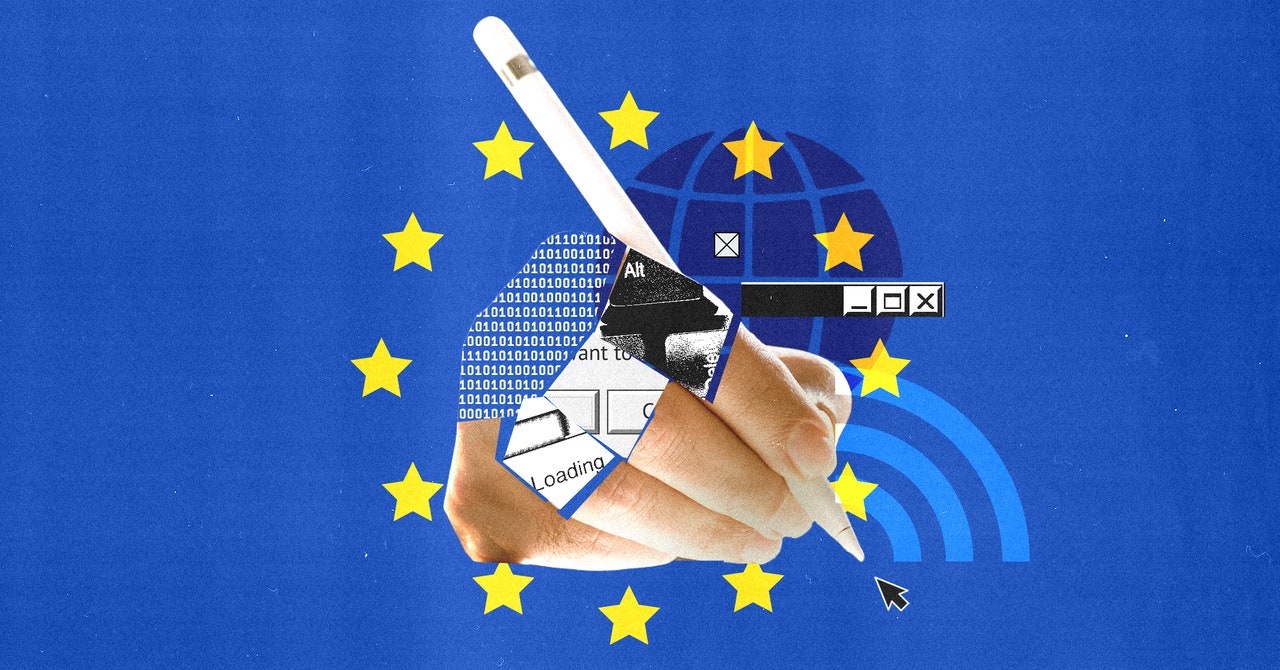Next week, a law comes into effect that will change the internet forever — and make it that much harder to be a tech giant. On November 1, the European Union’s Digital Markets Act will come into effect, starting the clock on a process that is expected to force Amazon, Google and Meta to make their platforms more open and interoperable by 2023. That could mean big changes in what people can do with their devices and apps, in a new reminder that Europe has been regulating tech companies much more actively than the US.
“We expect the consequences to be significant,” said Gerard de Graaf, an experienced EU official who helped pass the DMA early this year. Last month, he became director of a new EU office in San Francisco, co-founded to explain the implications of the law to big tech companies. The Graaf says they will be forced to break open their walled gardens.
“If you have an iPhone, you should be able to download apps not only from the App Store, but also from other app stores or from the Internet,” said de Graaf in an emerald-accented conference room at the Irish Consulate in San Francisco, where the EU office is originally located. The DMA requires dominant platforms to let in smaller competitors, and could also force Meta’s WhatsApp to receive messages from competing apps like Signal or Telegram, or prevent Amazon, Apple and Google from favoring their own apps and services.
While the DMA goes into effect next week, tech platforms don’t have to comply immediately. The EU must first decide which companies are large and entrenched enough to be classified as “gatekeepers”, subject to the strictest rules. De Graaf expects that there will be about ten companies in that group, which will be announced in the spring. Those gatekeepers then have six months to comply with the requirements.
De Graaf has predicted a spate of lawsuits challenging Europe’s new rules for Big Tech, but says he’s in California to show the Silicon Valley giants that the rules have changed. The EU has previously imposed hefty fines on Google, Apple and others through antitrust investigations, a mechanism that places the burden of proof on bureaucrats, he says. Under DMA, it is the company’s responsibility to stay in line. “The most important message is that the negotiations are over, we are in a compliance situation,” says de Graaf. “You may not like it, but that’s the way it is.”
Like EU digital privacy law, the GDPR, the DMA is expected to lead to changes in the way technology platforms serve people beyond the 400 million internet users in the EU, as some details of compliance will be more easily implemented globally.
Tech companies will also soon face a second sweeping EU law, the Digital Services Act, which requires risk assessments of some algorithms and disclosures about automated decision-making, and which could force social apps like TikTok to open up their data to outside scrutiny. The law is also being phased in, with the largest online platforms expected to be compliant by mid-2024. The EU is also considering adopting specific rules for artificial intelligence, which could ban some use cases of the technology.

